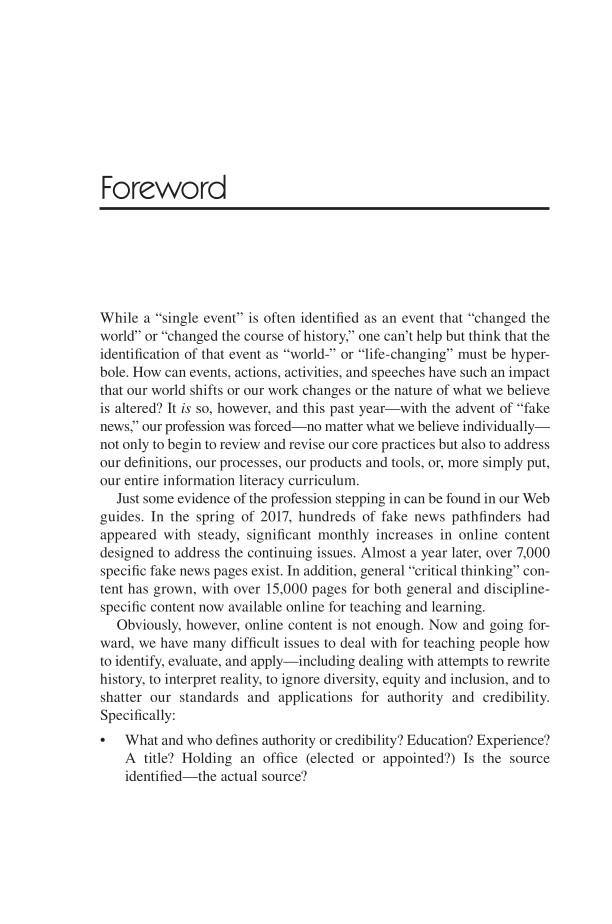Foreword While a “single event” is often identified as an event that “changed the world” or “changed the course of history,” one can’t help but think that the identification of that event as “world-” or “life-changing” must be hyper- bole. How can events, actions, activities, and speeches have such an impact that our world shifts or our work changes or the nature of what we believe is altered? It is so, however, and this past year—with the advent of “fake news,” our profession was forced—no matter what we believe individually— not only to begin to review and revise our core practices but also to address our definitions, our processes, our products and tools, or, more simply put, our entire information literacy curriculum. Just some evidence of the profession stepping in can be found in our Web guides. In the spring of 2017, hundreds of fake news pathfinders had appeared with steady, significant monthly increases in online content designed to address the continuing issues. Almost a year later, over 7,000 specific fake news pages exist. In addition, general “critical thinking” con- tent has grown, with over 15,000 pages for both general and discipline- specific content now available online for teaching and learning. Obviously, however, online content is not enough. Now and going for- ward, we have many difficult issues to deal with for teaching people how to identify, evaluate, and apply—including dealing with attempts to rewrite history, to interpret reality, to ignore diversity, equity and inclusion, and to shatter our standards and applications for authority and credibility. Specifically: • What and who defines authority or credibility? Education? Experience? A title? Holding an office (elected or appointed?) Is the source identified—the actual source?
Document Details My Account Print multiple pages
Print
You have printed 0 times in the last 24 hours.
Your print count will reset on at .
You may print 0 more time(s) before then.
You may print a maximum of 0 pages at a time.









































































































































































































